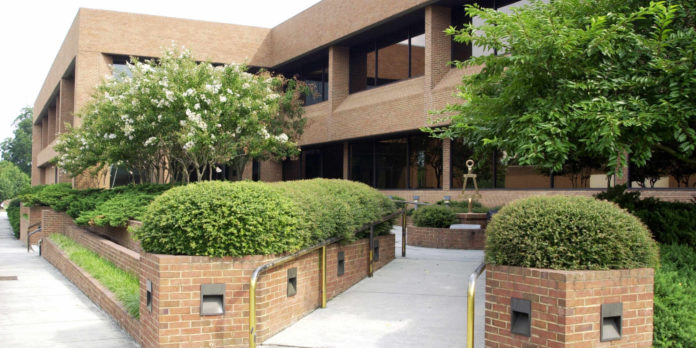MACON – The U.S. Environmental Protection Agency (EPA) has awarded a team of four Mercer University students a People, Prosperity, and Planet (P3) grant in the amount of $14,986 for a project to treat residential gray water for sub-surface landscape irrigation.
Senior environmental engineering major Victoria Rexhausen, senior global health major Jin Kim, senior marketing major Stevie Watson and junior economics and math double-major Simran Khoja are collaborating on the design of a system that uses bio-filtration technology and an in-ground detention tank to treat gray water produced in households to be used for outdoor sub-surface applications, namely irrigation.
Gray water is wastewater generated in households or office buildings from streams without fecal contamination.
Mercer students and faculty have installed several field-scale systems in collaboration with Macon Area Habitat for Humanity. The EPA grant will allow for the expansion of field-scale research by upgrading one of the original detention-only treatment systems to include a bio-filtration component.
Researchers at the University, specifically in the School of Engineering, have been conducting laboratory and field studies on the treatment of residential gray water for use in sub-surface landscape irrigation for almost 10 years. The overall goal is to provide regulatory officials with technical data that can be used to guide inclusion of on-site gray water treatment and its re-use for sub-surface landscape irrigation into water management strategies.
“We are very excited that the proposal submitted by these students was selected for funding,” said Dr. Philip McCreanor, professor of environmental engineering, director of the Engineering Honors Program and principal investigator for the grant. “Designing a system that uses the gray water already produced in daily household activities for use in irrigation has the capability to decrease the demand for treated water. The system’s benefits could include reducing domestic water consumption, conserving water and energy resources, and decreasing demand of water from natural reservoirs.”
Technical data used to support the development of the students’ proposal was funded from several sources, including a 2009 SEED Grant from the Mercer Provost’s Office, a 2013 service-learning grant from State Farm and a 2016 grant from the University’s Research that Reaches Out Office.
Nationally, more than $463,000 in funding for 31 Phase I teams was awarded through the P3 grants program. These teams, made up of college students from across the country, are developing sustainable technologies to solve current environmental and public health challenges.
“This year’s P3 teams are applying their classroom learning to create innovative and practical technologies,” said EPA Administrator Scott Pruitt. “This next generation of scientists has demonstrated a commitment to designing sustainable solutions that will help protect public health and the environment.”
“This grant will offer Mercer University student hands-on experience that brings their classroom learning to life. It also allows them to create the potential for tangible improvements in their communities and to the environment,” added Regional Administrator Trey Glen.
Funding for the P3 competition is divided into two phases. Teams selected for Phase I awards receive grants of up to $15,000 to fund the proof of concept for their projects, which are then showcased at the National Sustainable Design Expo. The 2018 Expo is scheduled to be held April 7-8 at the USA Science and Engineering Festival in Washington, D.C.
Phase I teams are eligible to compete for Phase II awards of up to $75,000 to further develop and implement their designs.
These students, who represent the future workforce in diverse scientific and engineering fields, are following in the footsteps of previous P3 teams. Some of these teams have gone on to start businesses based on ideas and products developed through their P3 project.
Sunn, which creates energy-efficient LED light fixtures and apps that mimic outdoor light for indoor use, began as a team of students from Cornell University that won a P3 award in 2012 to design and test a Fiber Optic Hybrid Lighting system.
In 2007, a P3 team from Drexel University developed a Bubble Column Reactor, which used fatty acids gathered from grease-trap waste at wastewater management plants to create biodiesel. This technology formed the foundation for Environmental Fuel Research LLC.
For more information on the P3 Program, visit www.epa.gov/P3.









